In the world of international trade, understanding freight forwarding services is crucial for businesses looking to import goods efficiently and cost-effectively. A freight forwarder acts as a vital intermediary, managing the complexities of shipping logistics, from documentation to customs clearance, and ensuring compliance with international regulations. Whether you’re considering air freight for urgent shipments or sea freight for bulk orders, knowing the key responsibilities and services a freight forwarder provides can significantly enhance your shipping operations. This guide explores essential shipping options, factors to consider when choosing a freight forwarder, common challenges faced during shipping from China to Kuwait, and tips for fostering successful partnerships in the logistics landscape.

Understanding Freight Forwarding Services
A freight forwarder acts as an intermediary between shippers and transportation services, orchestrating the logistics of moving goods from one place to another while ensuring compliance with international shipping regulations. They handle various aspects of the shipping process, including documentation, customs clearance, and transportation. By leveraging their expertise and network, freight forwarders provide businesses with cost-effective and efficient solutions tailored to their specific shipping needs.
Key Responsibilities and Services Offered
Freight forwarders provide a comprehensive suite of services, which can include:
- Documentation Management: Preparing and managing essential shipping documents such as bills of lading, commercial invoices, and packing lists.
- Customs Clearance: Facilitating the customs clearance process to ensure compliance with import and export regulations, thus minimizing delays.
- Cargo Insurance: Offering insurance services to protect shipments against loss or damage during transit.
- Warehousing and Distribution: Providing warehouse services for temporary storage of goods before distribution.
- Transportation Coordination: Managing and coordinating transportation through multiple modes, such as air freight, sea freight, and road transport.
- Freight Consolidation: Offering cost-effective solutions through LCL (Less than Container Load) shipping by consolidating cargo from multiple shippers into one container.
- Consultation and Support: Providing expert advice on shipping routes, regulations, and costs, helping businesses make informed decisions.
By engaging a reputable freight forwarder like Dantful International Logistics, businesses can benefit from streamlined processes and professional guidance, enabling them to focus on their core operations.
Shipping Options from China to Kuwait
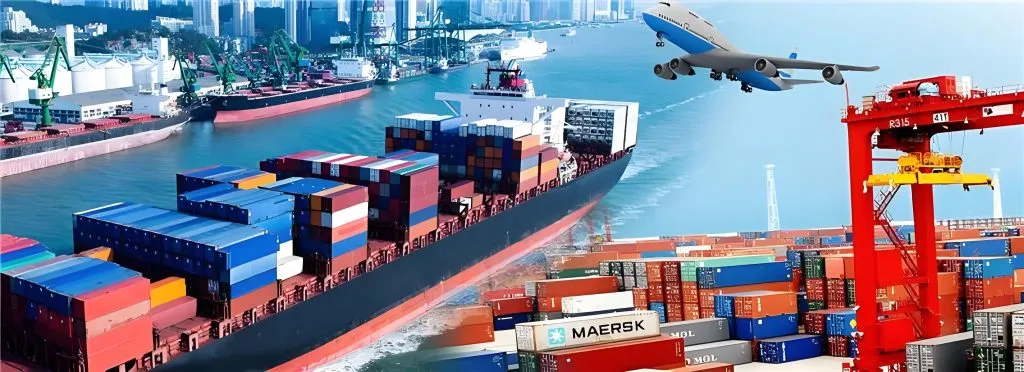
When considering shipping options from China to Kuwait, businesses should evaluate the various modes of transport available, each with its unique advantages, transit times, and costs.
Air Freight
Transit Times and Costs
Air freight is often the preferred choice for urgent shipments due to its speed. Transit times from China to Kuwait typically range from 3 to 7 days, depending on the specific departure and arrival locations. While air freight costs can be higher than other shipping methods, businesses can find competitive rates through strategic partnerships with airlines and freight forwarders.
| Shipping Method | Average Transit Time | Cost per Kilogram |
|---|---|---|
| Air Freight | 3-7 days | $5 – $10 |
Major Airports and Airlines
Key airports in Kuwait include Kuwait International Airport (KWI), which serves as the primary hub for international air cargo. Major airlines operating in this region include Qatar Airways, Emirates, and Etihad Airways, which provide regular flights from various Chinese cities such as Shanghai, Beijing, and Guangzhou.
Sea Freight
For businesses looking to optimize shipping costs, sea freight is an alternative that involves longer transit times but is cost-effective for larger shipments.
FCL (Full Container Load) vs. LCL (Less than Container Load)
- FCL: Ideal for businesses with sufficient cargo volume to fill an entire container. This option offers cost advantages for larger shipments as the fixed costs of container rental are spread over a larger volume.
- LCL: Suitable for smaller shipments, where the goods can be consolidated with those of other shippers. This method generally results in lower shipping costs but may lead to longer transit times due to the need for consolidation and deconsolidation processes.
Main Ports and Shipping Routes
The primary port in Kuwait is Shuwaikh Port, which handles the majority of sea freight activity. Shipping routes from Chinese ports such as Shanghai, Ningbo, and Shenzhen to Shuwaikh typically take 25 to 35 days for FCL shipments, while LCL shipments may take up to 45 days due to additional handling.
| Shipping Method | Average Transit Time | Cost per Container (FCL) | Cost per Cubic Meter (LCL) |
|---|---|---|---|
| Sea Freight (FCL) | 25-35 days | $1,200 – $2,500 | N/A |
| Sea Freight (LCL) | 35-45 days | N/A | $100 – $200 |
Express Shipping for Urgent Cargo
For shipments requiring immediate delivery, express shipping services are available. These services utilize both air and expedited ground transport to ensure that cargo reaches its destination swiftly, often within 1 to 3 days. While more expensive than standard air freight, express shipping provides the fastest delivery times for urgent requirements, making it an invaluable option for businesses dealing with time-sensitive goods.
In navigating the complexities of international shipping, partnering with a professional freight forwarder like Dantful International Logistics can enhance operational efficiency and provide tailored solutions, ensuring seamless logistics from China to Kuwait and beyond. For comprehensive support, including Door-to-door shipping, customs clearance, and more, Dantful is ready to assist your business in achieving its logistics goals.
Shipping From China to Middle East Countries:
- Shipping from China to Saudi Arabia
- Shipping from China to UAE
- Shipping from china to KUWAIT
- Shipping From China To EGYPT
- Shipping from China to Bahrain
- Shipping From China To Jordan
- Shipping From China To Israel
- Shipping from China to Qatar
- Shipping From China To IRAQ
- Shipping from China to Iran
Factors to Consider When Choosing a Freight Forwarder
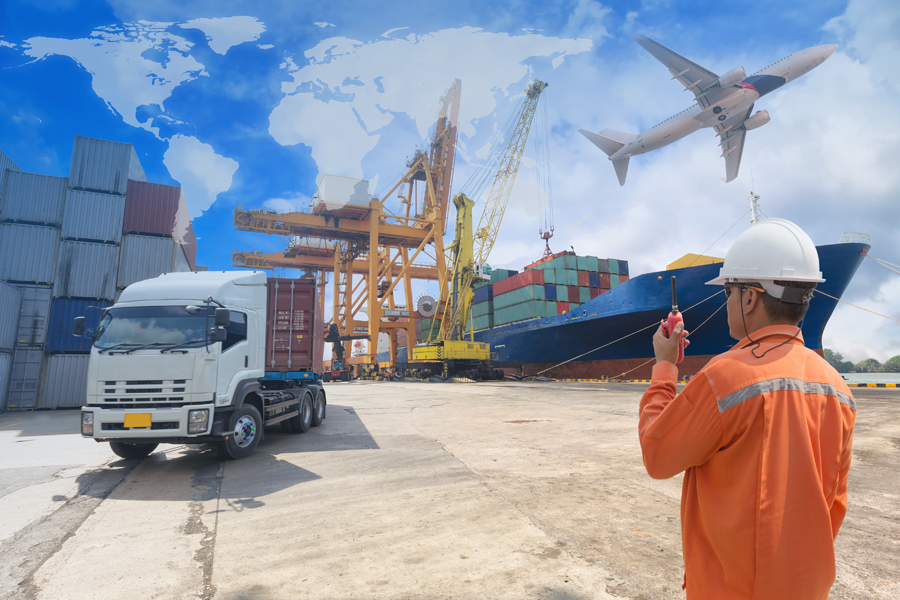
Selecting the right freight forwarder is crucial for the success of your shipping operations, especially when dealing with international trade between China and Kuwait. Here are key factors to consider during this decision-making process.
Experience and Expertise in China-Kuwait Trade
A freight forwarder’s experience in the specific trade route between China and Kuwait is invaluable. This expertise ensures they are familiar with the unique challenges, regulations, and logistics involved in this particular corridor. A forwarder with a proven track record will not only have insights into efficient routing but also an understanding of potential pitfalls and how to navigate them effectively.
Range of Services Offered
Evaluating the range of services a freight forwarder provides is essential. Comprehensive services should include air freight, sea freight, customs clearance, warehousing, and door-to-door delivery options. A freight forwarder that offers a one-stop solution will streamline your logistics process, reducing the need to engage multiple providers and simplifying communication.
Network and Partnerships in Both Countries
A strong network of partnerships in both China and Kuwait can significantly influence the speed and reliability of shipping operations. Forwarders with established relationships with carriers, customs agents, and local warehouses can negotiate better rates, ensure faster transit times, and provide more efficient customs processes.
Pricing and Cost Transparency
Understanding a freight forwarder’s pricing structure is vital to ensuring that your logistics budget is well-managed. Look for forwarders that offer clear, detailed estimates without hidden fees. This transparency allows businesses to make informed decisions and helps avoid unexpected costs during transit.
Communication and Customer Service
Effective communication and customer service are critical when choosing a freight forwarder. A responsive forwarder should provide timely updates on shipment status, address queries promptly, and offer solutions to any issues that may arise. Strong customer service builds trust and helps foster long-term business relationships.
Technology and Tracking Capabilities
In today’s fast-paced logistics environment, having advanced tracking capabilities is essential. Choose a freight forwarder that utilizes technology to provide real-time updates on shipment progress. This capability not only enhances visibility but also allows businesses to proactively manage their supply chain and respond to any delays or changes in transit.
Customs Clearance Expertise
Given the complexity of international shipping, having a freight forwarder with customs clearance expertise is crucial. They should be well-versed in the regulations and documentation required for shipments between China and Kuwait, ensuring compliance and minimizing delays at customs.
Insurance Options
Protecting your cargo is essential, and a reputable freight forwarder should offer various insurance options. They should provide guidance on selecting the right level of coverage to safeguard your goods against theft, damage, or loss during transit. Understanding the terms and conditions of insurance policies can safeguard your investment in the long term.
Steps to Select the Right Freight Forwarder from China to Kuwait
Choosing the right freight forwarder involves several key steps to ensure you have a trusted partner for your logistics needs.
Assess Your Specific Shipping Needs
Begin by assessing your specific shipping needs. Consider the types of goods you will be transporting, the volume and weight of shipments, and the preferred modes of transport (air or sea). Understanding these factors will help you find a forwarder that specializes in the services relevant to your operations.
Research Potential Forwarders
Conduct thorough research on potential forwarders. Look for companies with experience in the China-Kuwait trade lane and those that have a strong reputation within the industry. Websites, industry reviews, and referrals from business associates can provide valuable insights into a forwarder’s performance and reliability.
Request and Compare Quotes
Once you have a shortlist, request quotes from each freight forwarder. Ensure that these quotes include all relevant information, such as shipping methods, expected transit times, and any additional services. Comparing quotes will help you assess which forwarder offers the best value for your specific requirements.
Check References and Reviews
Before making a decision, check references and online reviews for each forwarder. Feedback from previous clients can reveal a lot about a company’s reliability, efficiency, and customer service. Pay attention to reviews that specifically mention experiences with shipping to or from Kuwait.
Evaluate Communication and Responsiveness
Assess each forwarder’s communication and responsiveness during your interactions. A forwarder that is quick to respond to your inquiries and provides clear information is likely to offer better service during the shipping process. Effective communication is crucial for resolving issues and ensuring a smooth logistics experience.
Consider a Trial Shipment
Finally, consider conducting a trial shipment with your selected forwarder. This allows you to evaluate their performance, including transit times, communication, and overall service quality. A trial shipment can provide valuable insights and help you determine whether the forwarder is a good fit for your long-term needs.
In the competitive landscape of logistics, engaging a proficient freight forwarder like Dantful International Logistics can vastly improve your shipping processes, ensuring timely and cost-effective delivery from China to Kuwait. With a comprehensive range of services, strong partnerships, and a commitment to customer satisfaction, Dantful is a leading choice for businesses aiming to optimize their international logistics operations.
Dantful International Logistics Services:
- Dantful Ocean Freight Services
- Air Freight From China
- Amazon FBA Freight Forwarding
- WAREHOUSE Services
- One-Stop Customs Clearance Solution
- Cargo Insurance Services in China
- DDP Shipping Services By Dantful Logistics
- Out of Gauge Cargo Transportation Shipping Services
Common Challenges and How to Avoid Them
When importing goods from China to Kuwait, businesses often encounter various challenges that can impact the efficiency and cost-effectiveness of their shipping operations. Below are some common issues and strategies to mitigate them.
Customs Delays and Documentation Issues
One of the most prevalent challenges in international shipping is dealing with customs delays caused by improper documentation or missed requirements. To avoid these obstacles:
- Ensure Accurate Documentation: Prepare all necessary documents meticulously, including commercial invoices, packing lists, and bills of lading. Ensure that all information is accurate and matches the cargo details.
- Stay Informed: Be aware of the specific customs regulations for both China and Kuwait. Regulations can change frequently, so keeping updated will help you avoid compliance issues.
- Engage Experts: Consider working with freight forwarders who specialize in customs clearance. Their expertise can facilitate smoother processing of shipments and reduce the likelihood of delays.
Hidden Costs and Fees
Unexpected costs can significantly impact your shipping budget and overall profitability. To prevent hidden fees from derailing your financial planning:
- Request Detailed Quotes: When soliciting quotes from freight forwarders, ask for a comprehensive breakdown of all potential costs. This includes shipping charges, handling fees, customs duties, and additional surcharges.
- Understand Pricing Structures: Familiarize yourself with the pricing models used by your chosen forwarder. Knowing what factors influence costs will help you anticipate expenses and budget accordingly.
- Negotiate Terms: Discuss payment terms and conditions upfront. Understanding payment schedules and possible penalties for changes in the contract can help you avoid unexpected expenses later.
Cargo Damage or Loss
Loss or damage to cargo during transit can have severe repercussions for businesses. To safeguard your shipments:
- Opt for Cargo Insurance: Protect your investment by purchasing the appropriate insurance services. Ensure that the coverage adequately accounts for the value and nature of the goods being shipped.
- Use Appropriate Packaging: Invest in high-quality packaging materials that can withstand the rigors of international shipping. Properly securing goods within containers can reduce the risk of damage.
- Conduct Regular Inspections: Monitor the condition of your cargo before, during, and after transit. Collaborate with your freight forwarder to address any discrepancies or damage reports immediately.
Communication Barriers
Language differences and cultural nuances can create obstacles in effective communication with freight forwarders and other parties involved in the shipping process. To enhance communication:
- Utilize Bilingual Staff: If possible, have bilingual personnel involved in the shipping process. This will help bridge any language gaps and ensure accurate exchanges of information.
- Establish Clear Channels: Set up specific communication protocols (such as regular updates or meetings) with your freight forwarder. This will foster transparency and minimize misunderstandings.
- Leverage Technology: Utilize digital tools and platforms that facilitate real-time communication and tracking of shipments. Ensuring everyone has access to relevant information can improve coordination.
You may be interested in the following related articles:
- Why Your Business Needs a Freight Forwarder from China to Brazil
- The Ultimate Guide to Choosing a Hazmat Freight Forwarder from China to Netherlands
- Freight Forwarder from China to Spain: Tips for Smooth Shipping
- Freight Forwarder from China to Oman: What You Need to Know
- The Ultimate Guide to Choosing a Freight Forwarder from China to UAE
- Why You Need a Reliable Freight Forwarder from China to Switzerland
Tips for a Successful Partnership with Your Freight Forwarder
Developing a successful partnership with your freight forwarder is essential for optimizing logistics operations and achieving long-term business success. Here are key strategies to strengthen your collaboration.
Clear Communication of Expectations
Explicitly outlining your expectations from the onset of the partnership can set the foundation for a successful relationship. This includes:
- Defining Objectives: Clearly articulate your shipping goals, including timelines, budget constraints, and service needs. This transparency helps the forwarder align their services to meet your requirements.
- Discussing Service Levels: Establish standards for communication frequency, reporting, and issue resolution procedures. Agreeing on these parameters can help both parties manage expectations effectively.
Regular Performance Reviews
Conducting periodic reviews of your freight forwarder’s performance helps ensure continuous improvement and accountability. Consider the following:
- Set Review Cycles: Schedule regular evaluations (e.g., quarterly) to assess service levels, delivery times, and any issues that may have arisen. Use this time to discuss successes and areas for improvement.
- Solicit Feedback: Encourage your freight forwarder to share their insights on your shipping practices. Their expertise may uncover opportunities for efficiency that you hadn’t considered.
- Adjust Agreements: As your business evolves, be open to adjusting agreements and service levels to accommodate changes in your shipping needs or operational scale.
Building a Long-Term Relationship
A strong, mutually beneficial partnership can lead to enhanced efficiency and cost savings over time. To foster this relationship:
- Be Responsive: Maintain open lines of communication and respond promptly to inquiries or changes in the shipping schedule. Being engaged builds trust and demonstrates commitment to the partnership.
- Show Appreciation: Acknowledge the contributions of your freight forwarder, especially during challenging times. Small gestures of appreciation can strengthen bonds and encourage collaborative problem-solving.
- Collaborate on Solutions: Work together to address any challenges that arise during the shipping process. A collaborative approach to problem-solving can enhance both parties’ capabilities and reinforce a positive working relationship.
By proactively addressing common challenges and fostering a strong partnership with your freight forwarder, businesses can navigate the complexities of importing goods from China to Kuwait with greater ease and efficiency. Partnering with a reputable logistics provider like Dantful International Logistics can further enhance operational success, offering tailored solutions and comprehensive support for all your shipping needs.
FAQs
1. What is a freight forwarder?
A freight forwarder acts as an intermediary between shippers and transportation services. They manage logistics for moving goods, ensuring compliance with regulations, handling documentation, customs clearance, and transportation coordination.
2. What services do freight forwarders provide?
Freight forwarders offer a comprehensive suite of services, including documentation management, customs clearance, cargo insurance, warehousing, transportation coordination, freight consolidation, and expert consultation.
3. What are the shipping options from China to Kuwait?
Shipping options include air freight for urgent shipments (3-7 days) and sea freight for cost-effective solutions (25-45 days), depending on whether you choose Full Container Load (FCL) or Less than Container Load (LCL).
4. How do I choose a freight forwarder for shipping from China to Kuwait?
Consider factors such as the forwarder’s experience in the trade route, range of services, network and partnerships, pricing transparency, customer service, technology capabilities, customs clearance expertise, and available insurance options.
5. What are common challenges when shipping from China to Kuwait?
Common challenges include customs delays, hidden costs, cargo damage or loss, and communication barriers. Strategies to mitigate these issues involve ensuring accurate documentation, requesting detailed quotes, opting for cargo insurance, and establishing clear communication channels.
6. How can I establish a successful partnership with my freight forwarder?
To foster a successful partnership, clearly communicate your expectations, conduct regular performance reviews, and build a long-term relationship through responsiveness and collaboration on solutions.

Young Chiu is a seasoned logistics expert with over 15 years of experience in international freight forwarding and supply chain management. As CEO of Dantful International Logistics, Young is dedicated to providing valuable insights and practical advice to businesses navigating the complexities of global shipping.
The other language versions of this article
- وكيل الشحن من الصين إلى الكويت: ما تحتاج إلى معرفته
- Expediteur van China naar Koeweit: wat u moet weten
- Transitaire de la Chine vers le Koweït : ce que vous devez savoir
- Spediteur von China nach Kuwait: Was Sie wissen müssen
- Spedizioniere dalla Cina al Kuwait: cosa devi sapere
- Transportista de China a Kuwait: lo que necesita saber
- Despachante de carga da China para o Kuwait: o que você precisa saber
- Экспедитор из Китая в Кувейт: что нужно знать
- Çin’den Kuveyt’e Nakliye Firması: Bilmeniz Gerekenler







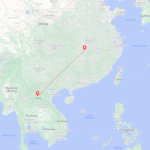



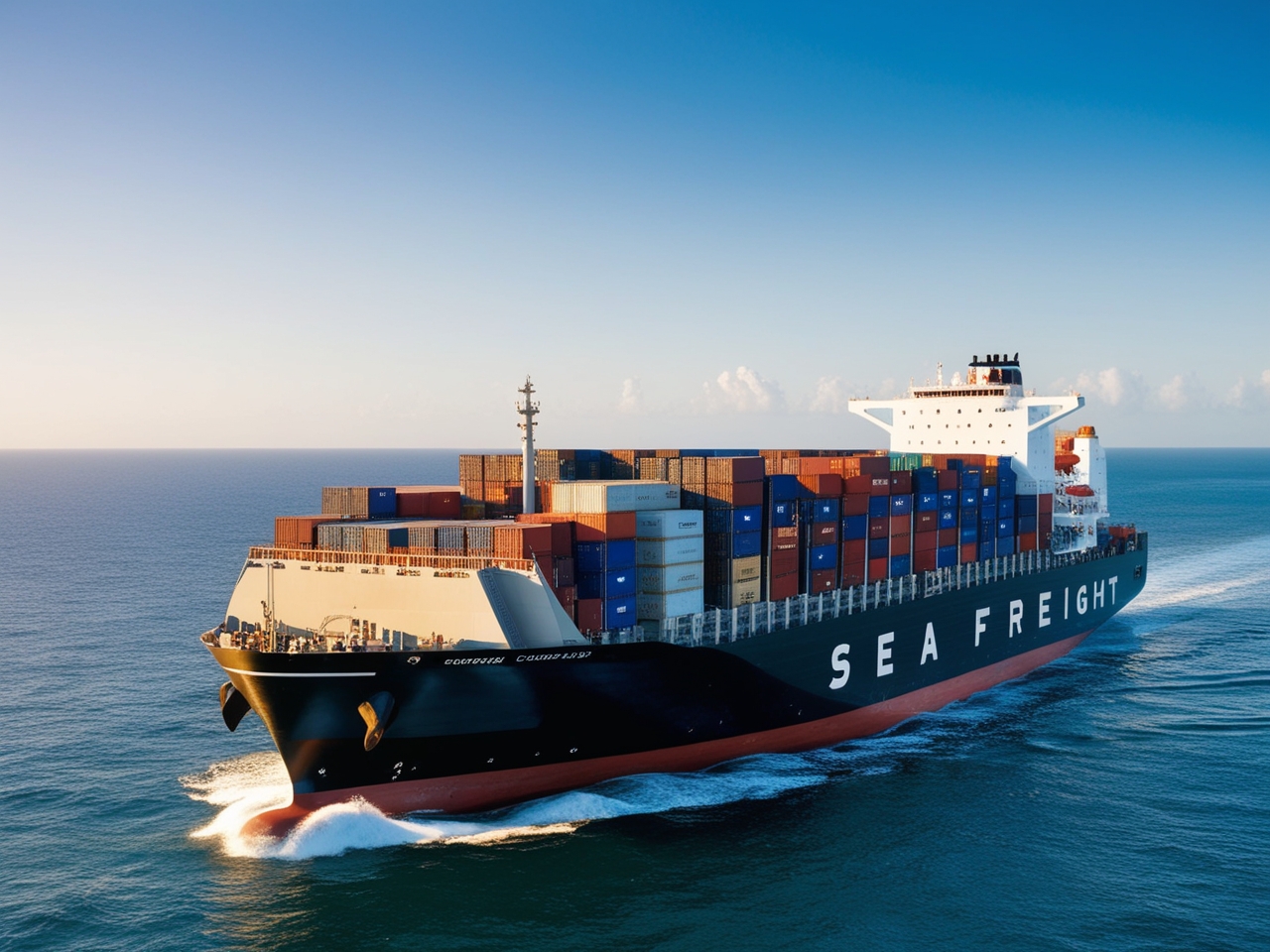
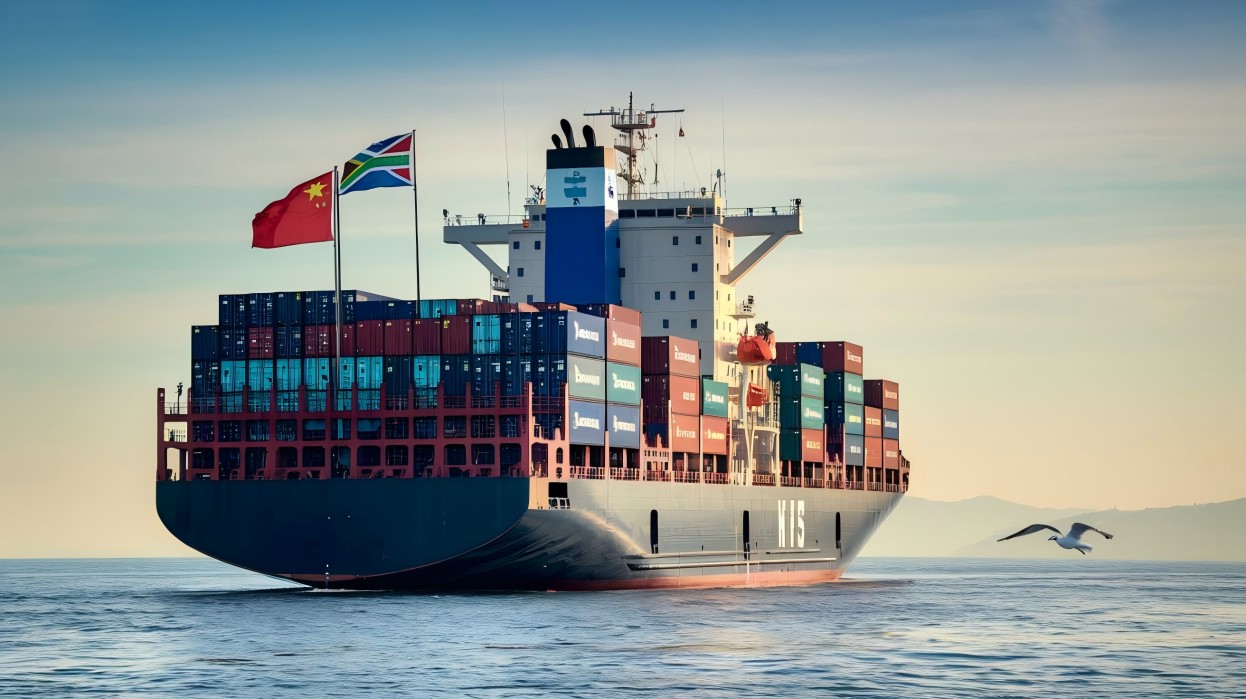


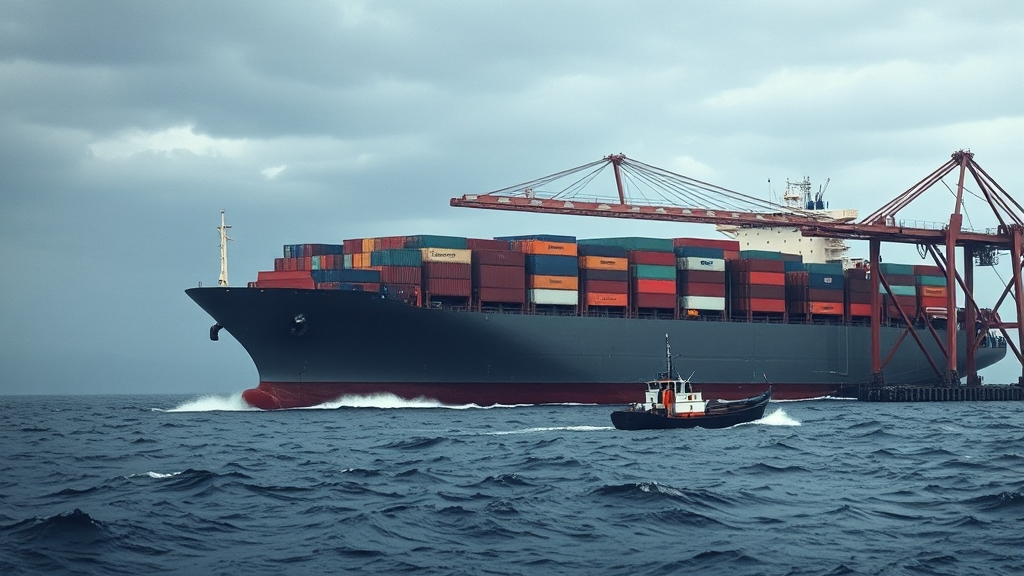





 Afrikaans
Afrikaans Shqip
Shqip አማርኛ
አማርኛ العربية
العربية Հայերեն
Հայերեն Azərbaycan dili
Azərbaycan dili Euskara
Euskara Беларуская мова
Беларуская мова বাংলা
বাংলা Bosanski
Bosanski Български
Български Català
Català Cebuano
Cebuano Chichewa
Chichewa 简体中文
简体中文 繁體中文
繁體中文 Corsu
Corsu Hrvatski
Hrvatski Čeština
Čeština Dansk
Dansk Nederlands
Nederlands English
English Esperanto
Esperanto Eesti
Eesti Filipino
Filipino Suomi
Suomi Français
Français Galego
Galego ქართული
ქართული Deutsch
Deutsch Ελληνικά
Ελληνικά Kreyol ayisyen
Kreyol ayisyen Harshen Hausa
Harshen Hausa Ōlelo Hawaiʻi
Ōlelo Hawaiʻi עִבְרִית
עִבְרִית हिन्दी
हिन्दी Hmong
Hmong Magyar
Magyar Íslenska
Íslenska Igbo
Igbo Bahasa Indonesia
Bahasa Indonesia Gaeilge
Gaeilge Italiano
Italiano 日本語
日本語 Basa Jawa
Basa Jawa ಕನ್ನಡ
ಕನ್ನಡ Қазақ тілі
Қазақ тілі ភាសាខ្មែរ
ភាសាខ្មែរ 한국어
한국어 كوردی
كوردی Кыргызча
Кыргызча ພາສາລາວ
ພາສາລາວ Latin
Latin Latviešu valoda
Latviešu valoda Lietuvių kalba
Lietuvių kalba Lëtzebuergesch
Lëtzebuergesch Македонски јазик
Македонски јазик Malagasy
Malagasy Bahasa Melayu
Bahasa Melayu മലയാളം
മലയാളം Maltese
Maltese Te Reo Māori
Te Reo Māori मराठी
मराठी Монгол
Монгол ဗမာစာ
ဗမာစာ नेपाली
नेपाली Norsk bokmål
Norsk bokmål پښتو
پښتو فارسی
فارسی Polski
Polski Português
Português ਪੰਜਾਬੀ
ਪੰਜਾਬੀ Română
Română Русский
Русский Samoan
Samoan Gàidhlig
Gàidhlig Српски језик
Српски језик Sesotho
Sesotho Shona
Shona سنڌي
سنڌي සිංහල
සිංහල Slovenčina
Slovenčina Slovenščina
Slovenščina Afsoomaali
Afsoomaali Español
Español Basa Sunda
Basa Sunda Kiswahili
Kiswahili Svenska
Svenska Тоҷикӣ
Тоҷикӣ தமிழ்
தமிழ் తెలుగు
తెలుగు ไทย
ไทย Türkçe
Türkçe Українська
Українська اردو
اردو O‘zbekcha
O‘zbekcha Tiếng Việt
Tiếng Việt Cymraeg
Cymraeg יידיש
יידיש Yorùbá
Yorùbá Zulu
Zulu